Archive for August 2016
 Short Shaggy Hairstyles for Women Over 50 New Hairstyles, Haircutshttp://www.hairstyleshelp.com/wp-content/uploads/2013/11/Beautiful-Short-Shaggy-Hairstyles-for-Women-Over-50.jpg
Short Shaggy Hairstyles for Women Over 50 New Hairstyles, Haircutshttp://www.hairstyleshelp.com/wp-content/uploads/2013/11/Beautiful-Short-Shaggy-Hairstyles-for-Women-Over-50.jpgLovely Short Hairstyles For Women
A hair, hairdo, or haircut refers to the styling of mane, on the human being scalp usually. Sometimes, this may also mean an editing of beard hair. The fashioning of hair can be viewed as an element of personal grooming, fashion, and cosmetics, although practical, cultural, and popular factors influence some hairstyles also. The oldest known depiction of hair braiding goes back about 30,000 years. In early civilizations, women's locks was often elaborately and carefully dressed in special ways. In Imperial Rome, women used their locks in complicated styles. From enough time of the Roman Empire[citation needed] before Middle Ages, many women grew their mane so long as it could normally expand. Through the Roman Empire as well as in the 16th century in the western world, women started out to wear their hair in ornate styles extremely. In the later half of the 15th century and on into the 16th century an extremely high hairline on the forehead was considered attractive. During the 16th and 15th hundreds of years, Western european men wore their wild hair cropped no than shoulder-length much longer. In the early 17th century male hairstyles grew longer, with curls or waves being considered advisable.
The male wig was pioneered by King Louis XIII of France (1601-1643) in 1624. Perukes or periwigs for men were launched into the English-speaking world with other French styles in 1660. Late 17th-century wigs were very long and wavy, but became shorter in the mid-18th century, where time these were normally white. Short hair for fashionable men was something of the Neoclassical movement. In the early 19th century the male beard, and also moustaches and sideburns, made a solid reappearance. From the 16th to the 19th hundred years, European women's scalp became more obvious while their hair coverings grew smaller. In the middle of the 18th century the pouf style developed. Through the First World War, women around the world started to shift to shorter hairstyles that were much easier to manage. In the first 1950s women's hair was generally curled and worn in a number of styles and lengths. In the 1960s, a lot of women started out to wear their wild hair in short modern cuts such as the pixie cut, while in the 1970s, mane tended to looser be much longer and. In both 1960s and 1970s a lot of men and women used their wild hair very directly and long. Within the 1980s, women pulled back their hair with scrunchies. During the 1980s, punk hairstyles were implemented by some people.
Throughout times, folks have worn their scalp in a multitude of styles, determined by the fashions of the culture they are in largely. Hairstyles are signifiers and markers of social class, age, marital status, racial identification, political beliefs, and attitudes about gender.
In many ethnicities, for religious reasons often, women's head of hair is covered while in public, and in some, such as Haredi Judaism or Western european Orthodox areas, women's locks is shaved or lower very brief, and protected with wigs.Only because the end of World Battle I've women started to wear their head of hair short and in pretty natural styles.
Paleolithic
- The oldest known duplication of wild hair braiding lies back again about 30,000 years: the Venus of Willendorf, now known in academia as the Woman of Willendorf, of a lady figurine from the Paleolithic, estimated to acquire been made between about 28,000 and 25,000 BCE.The Venus of Brassempouy matters about 25,000 years old and shows hairstyling indisputably.
Bronze Age
- In Bronze Age group razors were known and in use by some men, but not on a regular basis since the method was rather upsetting and required resharpening of the tool which reduced its stamina.
Ancient history
- In traditional civilizations, women's scalp was often elaborately and carefully dressed up in special ways. Women coloured their head of hair, curled it, and pinned it up (ponytail) in a variety of ways. They set their scalp in curls and waves using wet clay, that they dried out in the sun and then combed out, or else by using a jelly made of quince seeds soaked in normal water, or styling tongs and styling irons of varied kinds.
Roman Empire and DARK AGES
- Between 27 BC and 102 Advertising, in Imperial Rome, women used their hair in complicated styles: scores of curls at the top, or in rows of waves, attracted back to braids or ringlets. Eventually noblewomen's hairstyles grew so complex that they required daily attention from several slaves and a stylist in order to be maintained. The wild hair was lightened using timber ash, unslaked lime and sodium bicarbonate, or darkened with copper filings, oak-apples or leeches marinated in vinegar and wine beverages. It was augmented by wigs, hairpieces and pads, and held in place by nets, pins, combs and pomade. Under the Byzantine Empire, noblewomen covered the majority of their hair with silk pearl and caps nets.
Best Hair Styles For Short Hair Women
- It is very important to find the best short hairstyles for women since it plays a huge part of your style. Having the right hairstyle can provide you with enjoyment and positive thoughts. Find out which hairstyle is ideal for your character and personality. You should seek advice from your hairstylist before having a new haircut also. After all, changes are great and it can add positive prospect in your life also. Feel free to browse our assortment of short hairstyles for females and choose the one which your like best.
2012 – 2013 short hairstyles for women Love Hairstyle
 http://www.lhairstyle.com/wp-content/uploads/2012/08/2012-2013-short-hairstyles-for-women.jpg
http://www.lhairstyle.com/wp-content/uploads/2012/08/2012-2013-short-hairstyles-for-women.jpgSweet amp; Romantic Asian Hairstyles for Young Women Pretty Designs
 http://www.prettydesigns.com/wp-content/uploads/2014/06/Lovely-Short-Bob-Hairstyle.jpg
http://www.prettydesigns.com/wp-content/uploads/2014/06/Lovely-Short-Bob-Hairstyle.jpghairstyles pictures hairstyles pictures hairstyles pictures hairstyles
 https://blogger.googleusercontent.com/img/b/R29vZ2xl/AVvXsEjGDDAJwR0me5f9noTa7X9ABCNpKlaWY7asM8migxm3GTWZJYtb5DDUVYurBn8Exim346NNslLWNsGJy13OCxQzutnl1by_BRxA2pRQVoYZB7j9H9txY_nHibtSp1ajVFsBAGdxsBLDXas/s1600/short-hairstyles-pictures-for-women-2012+%286%29.jpg
https://blogger.googleusercontent.com/img/b/R29vZ2xl/AVvXsEjGDDAJwR0me5f9noTa7X9ABCNpKlaWY7asM8migxm3GTWZJYtb5DDUVYurBn8Exim346NNslLWNsGJy13OCxQzutnl1by_BRxA2pRQVoYZB7j9H9txY_nHibtSp1ajVFsBAGdxsBLDXas/s1600/short-hairstyles-pictures-for-women-2012+%286%29.jpg2012 – 2013 short hairstyles for women Love Hairstyle
 http://www.lhairstyle.com/wp-content/uploads/2012/08/2012-2013-short-hairstyles-for-women2.jpg
http://www.lhairstyle.com/wp-content/uploads/2012/08/2012-2013-short-hairstyles-for-women2.jpgOIP.Mdd5e23a7ea852a698e4c1073629e32d2o1
348838DEE0C78BC491B501589EB8A8217C4AC190EBhttp://www.hairstyleshelp.com/short-shaggy-hairstyles-for-women-over-50/
Embed Our image to your website
ThumbnailImageEmbed Our image to a Forum
ThumbnailImage
Short Shaggy Hairstyles for Women Over 50 New Hairstyles, Haircuts
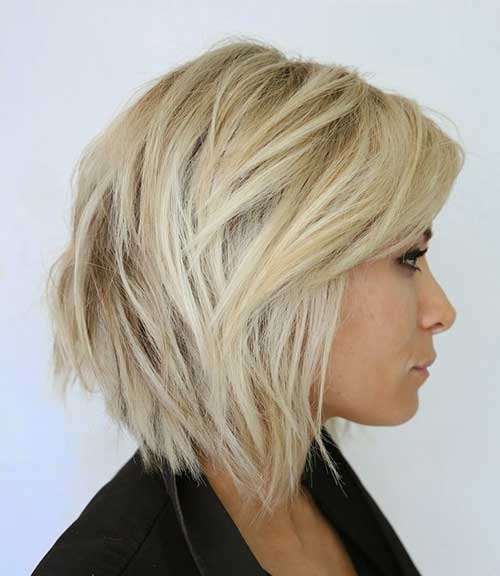 Short Hairstyles 2014 2015 The Best Short Hairstyles for Womenhttp://www.short-hairstyles.co/wp-content/uploads/2015/01/40-Best-Short-Hairstyles-2014-2015-30.jpg
Short Hairstyles 2014 2015 The Best Short Hairstyles for Womenhttp://www.short-hairstyles.co/wp-content/uploads/2015/01/40-Best-Short-Hairstyles-2014-2015-30.jpgHottest Short Hairstyles Women
A hair, hairdo, or haircut refers to the styling of scalp, on the real human scalp usually. Sometimes, this may also mean an editing of beard hair. The fashioning of hair can be considered an aspect of personal grooming, fashion, and cosmetics, although practical, cultural, and popular considerations also influence some hairstyles. The oldest known depiction of hair braiding goes back about 30,000 years. In old civilizations, women's locks was often elaborately and carefully dressed up in special ways. In Imperial Rome, women wore their hair in complicated styles. From enough time of the Roman Empire[citation needed] before Middle Ages, most women grew their mane as long as it could effortlessly grow. During the Roman Empire as well as in the 16th century in the western world, women began to wear their hair in extremely ornate styles. In the later half of the 15th century and on into the 16th century a very high hairline on the forehead was considered attractive. During the 15th and 16th ages, Western men used their head of hair cropped no longer than shoulder-length. In the first 17th century male hairstyles grew longer, with curls or waves being considered advisable.
The male wig was pioneered by Ruler Louis XIII of France (1601-1643) in 1624. Perukes or periwigs for men were launched in to the English-speaking world with other French styles in 1660. 17th-century wigs were very long and wavy late, but became shorter in the mid-18th century, where time they were normally white. Short hair for fashionable men was a product of the Neoclassical movement. In the first 19th hundred years the male beard, and moustaches and sideburns also, made a strong reappearance. In the 16th to the 19th hundred years, European women's hair became more noticeable while their wild hair coverings grew smaller. In the center of the 18th hundred years the pouf style developed. Through the First World Conflict, women around the global world started to shift to shorter hairstyles that were much easier to manage. In the first 1950s women's hair was generally curled and worn in a number of styles and lengths. In the 1960s, many women started out to wear their locks in short modern cuts like the pixie cut, within the 1970s, hair tended to be longer and looser. In both 1960s and 1970s many men and women wore their wild hair very directly and long. Inside the 1980s, women pulled back their hair with scrunchies. During the 1980s, punk hairstyles were followed by some people.
Throughout times, people have worn their hair in a wide variety of styles, determined by the fashions of the culture they are in largely. Hairstyles are markers and signifiers of social class, age, marital status, racial identification, political beliefs, and attitudes about gender.
In many ethnicities, for religious reasons often, women's locks is protected while in public areas, and in some, such as Haredi Judaism or Western Orthodox neighborhoods, women's scalp is shaved or minimize very short, and covered with wigs.Only because the end of World War I have women begun to wear their hair brief and in quite natural styles.
Paleolithic
- The oldest known reproduction of wild hair braiding lies again about 30,000 years: the Venus of Willendorf, now known in academia as the girl of Willendorf, of a female figurine from the Paleolithic, estimated to get been made between about 28,000 and 25,000 BCE.The Venus of Brassempouy counts about 25,000 years old and shows hairstyling indisputably.
Bronze Age
- In Bronze Get older razors were known and in use by some men, but not on a regular basis since the treatment was rather upsetting and required resharpening of the tool which reduced its strength.
Ancient history
- In historic civilizations, women's hair was often elaborately and carefully dressed up in special ways. Women coloured their scalp, curled it, and pinned it up (ponytail) in many ways. They established their head of hair in waves and curls using wet clay, that they dried out in the sun and then combed out, or else by utilizing a jelly manufactured from quince seeds soaked in normal water, or styling tongs and curling irons of various kinds.
Roman Empire and DARK AGES
- Between 27 BC and 102 Advertisement, in Imperial Rome, women wore their scalp in complicated styles: a mass of curls on top, or in rows of waves, drawn back to braids or ringlets. Eventually noblewomen's hairstyles grew so complex that they required daily attention from several slaves and a stylist to become maintained. The scalp was lightened using solid wood ash, unslaked lime and sodium bicarbonate, or darkened with copper filings, oak-apples or leeches marinated in wines and vinegar. It was augmented by wigs, pads and hairpieces, and held in place by nets, pins, combs and pomade. Under the Byzantine Empire, noblewomen covered almost all of their hair with silk pearl and caps nets.
Best Hair Styles For Short Hair Women
- It is vital to find the best short hair styles for ladies since it plays a huge part of your style. Getting the right hairstyle provides you with delight and positive emotions. Find out which hairstyle is ideal for your personality and character. You should also consult your hairstylist before having a new haircut. After all, changes are excellent and it can also add positive outlook in your life. Feel free to browse our collection of short hairstyles for girls and choose the one that your like best.
Best Short Hairstyles Square Face furthermore Women Short Hairstyle
 http://gvenny.com/images5/0316/2016-short-hairstyles-trends/2016-short-hairstyles-trends-43_4.jpg
http://gvenny.com/images5/0316/2016-short-hairstyles-trends/2016-short-hairstyles-trends-43_4.jpgHottest Short Hairstyles 20152016 Chic Bobs, Long Hair Trend 1
 http://thefashionwatch.com/wp-content/uploads/2014/10/Hottest-Short-Hairstyles-2015-2016-Chic-Bobs-Long-Hair-Trend-1.jpg
http://thefashionwatch.com/wp-content/uploads/2014/10/Hottest-Short-Hairstyles-2015-2016-Chic-Bobs-Long-Hair-Trend-1.jpgThe Hottest Short Hairstyles for Summer 2015 Latest Bob Hairstyles
 http://www.latestbobhairstyles.com/wp-content/uploads/2015/03/Best-Short-Haircuts-For-Women-With-Curly-Hair.jpg
http://www.latestbobhairstyles.com/wp-content/uploads/2015/03/Best-Short-Haircuts-For-Women-With-Curly-Hair.jpg22 Hottest Short Hairstyles for Women 2017 Trendy Short Haircuts to
 http://hairstylesweekly.com/images/2014/09/Best-Short-Haircuts-for-2015.jpg
http://hairstylesweekly.com/images/2014/09/Best-Short-Haircuts-for-2015.jpgOIP.Maa1da2228cbd00be7e977c6413a5b67co0
436302353F7FCC6B40B97F70E4AEC3A6A25DBF1211http://www.short-hairstyles.co/40-best-short-hairstyles-2014-2015.html
Embed Our image to your website
ThumbnailImageEmbed Our image to a Forum
ThumbnailImage
Short Hairstyles 2014 2015 The Best Short Hairstyles for Women
 Beautiful Short Hairstyles for Black Women Short Hairstyles 2015http://www.hairstyleshelp.com/wp-content/uploads/2013/11/Beautiful-Short-Haircuts-for-Older-Women.jpg
Beautiful Short Hairstyles for Black Women Short Hairstyles 2015http://www.hairstyleshelp.com/wp-content/uploads/2013/11/Beautiful-Short-Haircuts-for-Older-Women.jpgLovely Short Hairstyles For Women
A hairstyle, hairdo, or haircut refers to the styling of mane, usually on the individuals head. Sometimes, this may suggest an editing and enhancing of beard scalp also. The fashioning of hair can be viewed as an element of personal grooming, fashion, and cosmetics, although practical, cultural, and popular considerations also influence some hairstyles. The oldest known depiction of hair braiding goes back about 30,000 years. In traditional civilizations, women's head of hair was often elaborately and carefully dressed in special ways. In Imperial Rome, women wore their head of hair in complicated styles. From enough time of the Roman Empire[citation needed] before Middle Ages, nearly all women grew their wild hair as long as it could obviously develop. During the Roman Empire as well as in the 16th century under western culture, women started out to wear their hair in ornate styles extremely. In the later half of the 15th century and on in to the 16th century an extremely high hairline on the forehead was considered attractive. During the 15th and 16th generations, European men wore their mane cropped no than shoulder-length much longer. In the early 17th century male hairstyles grew longer, with curls or waves being considered advisable.
The male wig was pioneered by King Louis XIII of France (1601-1643) in 1624. Perukes or periwigs for men were introduced in to the English-speaking world with other French styles in 1660. 17th-century wigs were lengthy and wavy late, but became shorter in the mid-18th century, where time these were normally white. Short hair for fashionable men was something of the Neoclassical movement. In the early 19th century the male beard, and also moustaches and sideburns, made a solid reappearance. From the 16th to the 19th hundred years, European women's locks became more obvious while their mane coverings grew smaller. In the center of the 18th hundred years the pouf style developed. During the First World Conflict, women around the world started to shift to shorter hairstyles that were simpler to manage. In the first 1950s women's hair was generally curled and worn in a variety of styles and lengths. In the 1960s, a lot of women started to wear their locks in a nutshell modern cuts including the pixie cut, while in the 1970s, scalp tended to looser be longer and. In both 1960s and 1970s many men and women used their mane very straight and long. Inside the 1980s, women pulled back their hair with scrunchies. Through the 1980s, punk hairstyles were used by some communal people.
Throughout times, people have worn their wild hair in a wide variety of styles, determined by the fashions of the culture they stay in largely. Hairstyles are markers and signifiers of social class, age, marital status, racial identification, political beliefs, and attitudes about gender.
In many cultures, for religious reasons often, women's mane is covered while in public, and in a few, such as Haredi Judaism or European Orthodox neighborhoods, women's hair is shaved or trim very short, and covered with wigs.Only since the end of World Battle I've women started to wear their locks brief and in fairly natural styles.
Paleolithic
- The oldest known reproduction of locks braiding lies back again about 30,000 years: the Venus of Willendorf, now known in academia as the girl of Willendorf, of a female figurine from the Paleolithic, projected to obtain been made between about 28,000 and 25,000 BCE.The Venus of Brassempouy matters about 25,000 years of age and indisputably shows hairstyling.
Bronze Age
- In Bronze Get older razors were known and in use by some men, but not on a regular basis since the method was rather upsetting and required resharpening of the tool which reduced its strength.
Ancient history
- In early civilizations, women's scalp was often elaborately and carefully dressed up in special ways. Women colored their locks, curled it, and pinned it up (ponytail) in many ways. They collection their locks in curls and waves using damp clay, which they dried in the sun and then combed out, or else by using a jelly made of quince seeds soaked in water, or curling tongs and styling irons of varied kinds.
Roman Empire and DARK AGES
- Between 27 BC and 102 Advertisement, in Imperial Rome, women used their mane in complicated styles: scores of curls at the top, or in rows of waves, drawn back into ringlets or braids. Eventually noblewomen's hairstyles grew so complex that they required daily attention from several slaves and a stylist in order to be maintained. The mane was lightened using real wood ash, unslaked lime and sodium bicarbonate, or darkened with copper filings, oak-apples or leeches marinated in vinegar and wine beverages. It had been augmented by wigs, hairpieces and pads, and held in place by nets, pins, combs and pomade. Under the Byzantine Empire, noblewomen covered the majority of their hair with silk caps and pearl nets.
Best HAIRSTYLES For Short Hair Women
- It is very important to choose the best short hair styles for ladies since it performs a huge part of your look. Having the right hairstyle can offer you with pleasure and positive feelings. Find out which hairstyle is simply perfect for your personality and character. You should talk to your hairstylist before having a new haircut also. After all, changes are excellent and it can truly add positive perspective in your life also. Feel absolve to browse our collection of short hairstyles for girls and select the the one which your like best.
Beautiful Women with Short Hair The Hottest Women Short Haircuts
 http://esq.h-cdn.co/assets/cm/15/05/54cde6ecd5f7b_-_esq-01-beautiful-women-short-hair-030413-mdn.jpg
http://esq.h-cdn.co/assets/cm/15/05/54cde6ecd5f7b_-_esq-01-beautiful-women-short-hair-030413-mdn.jpgshort hairstyles for women beautiful women short hair
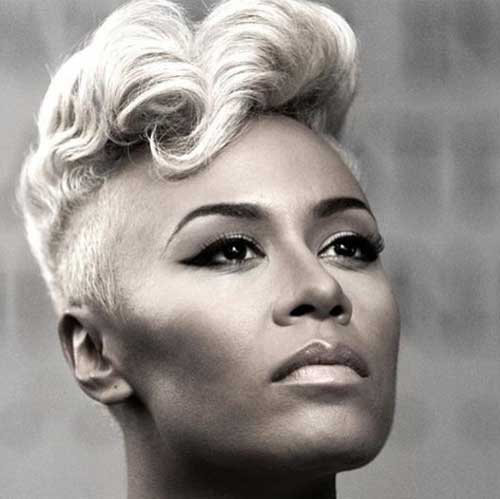 http://www.short-haircut.com/wp-content/uploads/2013/06/Beautiful-black-women-with-short-hair.jpg
http://www.short-haircut.com/wp-content/uploads/2013/06/Beautiful-black-women-with-short-hair.jpgwomen’s hair styles. A short hairstyle not only changes your hair
 http://gvenny.com/images/beautiful-short-hairstyles-for-women/beautiful-short-hairstyles-for-women-16-9.jpg
http://gvenny.com/images/beautiful-short-hairstyles-for-women/beautiful-short-hairstyles-for-women-16-9.jpgfor women with thick hair 21 beautiful short hairstyles for women with
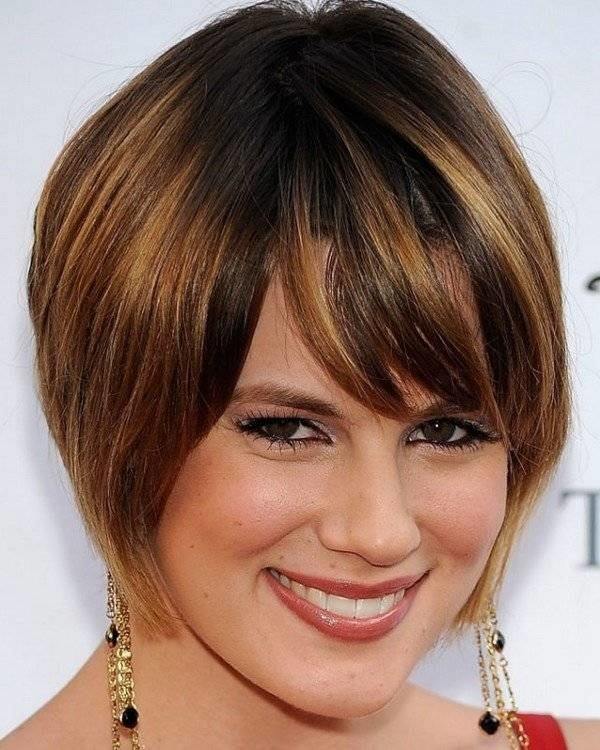 http://beautifieddesigns.com/wp-content/uploads/2015/12/beautiful-short-hairstyles-for-women-with-thick-hair.jpg
http://beautifieddesigns.com/wp-content/uploads/2015/12/beautiful-short-hairstyles-for-women-with-thick-hair.jpgOIP.M1564413eea6512150f9219971433ed26o1
16F257BE34BEEAD0DE1FC04DE395D550276FC882C8http://3d-pictures.feedio.net/great-beautiful-short-hairstyles-for-women-pictures/
Embed Our image to your website
ThumbnailImageEmbed Our image to a Forum
ThumbnailImage
Beautiful Short Hairstyles for Black Women Short Hairstyles 2015
 Short Hairstyles 2014 2015 The Best Short Hairstyles for Womenhttp://www.short-hairstyles.co/wp-content/uploads/2015/01/Short-Cut-Hairstyles1.jpg
Short Hairstyles 2014 2015 The Best Short Hairstyles for Womenhttp://www.short-hairstyles.co/wp-content/uploads/2015/01/Short-Cut-Hairstyles1.jpgHottest Short Hairstyles Women
A hair, hairdo, or haircut refers to the styling of mane, on the human being scalp usually. Sometimes, this could signify an editing and enhancing of beard locks also. The fashioning of hair can be viewed as an aspect of personal grooming, fashion, and cosmetics, although practical, cultural, and popular factors impact some hair styles also. The oldest known depiction of hair braiding dates back about 30,000 years. In old civilizations, women's hair was often elaborately and carefully dressed up in special ways. In Imperial Rome, women wore their hair in complicated styles. From enough time of the Roman Empire[citation needed] before Middle Ages, majority of the women grew their locks so long as it would develop by natural means. Through the Roman Empire as well as in the 16th century under western culture, women commenced to wear their hair in extremely ornate styles. Inside the later half of the 15th century and on in to the 16th century a very high hairline on the forehead was considered attractive. Through the 15th and 16th centuries, Western european men used their head of hair cropped no longer than shoulder-length. In the first 17th century male hairstyles grew longer, with waves or curls being considered desirable.
The male wig was pioneered by Ruler Louis XIII of France (1601-1643) in 1624. Periwigs or perukes for men were introduced in to the English-speaking world with other French styles in 1660. Late 17th-century wigs were very long and wavy, but became shorter in the mid-18th century, where time they were normally white. Short hair for fashionable men was a product of the Neoclassical movement. In the early 19th century the male beard, and also moustaches and sideburns, made a solid reappearance. Through the 16th to the 19th hundred years, European women's hair became more noticeable while their mane coverings grew smaller. In the center of the 18th century the pouf style developed. Through the First World Battle, women around the world started to shift to shorter hairstyles that were much easier to manage. In the early 1950s women's hair was generally curled and worn in a variety of styles and lengths. In the 1960s, many women started out to wear their hair in a nutshell modern cuts such as the pixie cut, within the 1970s, mane tended to be much longer and looser. In both 1960s and 1970s a lot of men and women wore their hair lengthy and straight. Inside the 1980s, women pulled back their hair with scrunchies. During the 1980s, punk hair styles were adopted by some communal people.
Throughout times, people have worn their scalp in a multitude of styles, determined by the fashions of the culture they live in largely. Hairstyles are signifiers and markers of social class, age, marital status, racial identification, political beliefs, and attitudes about gender.
In many civilizations, often for religious reasons, women's hair is protected while in public areas, and in some, such as Haredi Judaism or European Orthodox communities, women's locks is shaved or trim very brief, and covered with wigs.Only because the end of World War I have women started to wear their head of hair short and in pretty natural styles.
Paleolithic
- The oldest known duplication of wild hair braiding lies again about 30,000 years: the Venus of Willendorf, now known in academia as the girl of Willendorf, of a lady figurine from the Paleolithic, predicted to get been made between about 28,000 and 25,000 BCE.The Venus of Brassempouy counts about 25,000 years old and indisputably shows hairstyling.
Bronze Age
- In Bronze Age group razors were known and in use by some men, but not on a daily basis since the procedure was rather upsetting and required resharpening of the tool which reduced its strength.
Ancient history
- In old civilizations, women's mane was often elaborately and carefully dressed in special ways. Women colored their wild hair, curled it, and pinned it up (ponytail) in many ways. They set their locks in curls and waves using damp clay, which they dried in sunlight and then combed out, if not by utilizing a jelly manufactured from quince seed products soaked in normal water, or curling tongs and styling irons of various kinds.
Roman Empire and DARK AGES
- Between 27 BC and 102 Advertisement, in Imperial Rome, women used their mane in complicated styles: scores of curls at the top, or in rows of waves, attracted back into braids or ringlets. Eventually noblewomen's hairstyles grew so complex that they required daily attention from several slaves and a stylist to become maintained. The head of hair was lightened using hardwood ash, unslaked lime and sodium bicarbonate, or darkened with copper filings, oak-apples or leeches marinated in wine beverages and vinegar. It had been augmented by wigs, pads and hairpieces, and held set up by nets, pins, pomade and combs. Beneath the Byzantine Empire, noblewomen covered the majority of their hair with silk pearl and caps nets.
Best HAIRSTYLES For Short Hair Women
- It is vital to find the best short hairstyles for women since it plays an enormous part of your look. Getting the right hairstyle provides you with pleasure and positive thoughts. Find out which hairstyle is exquisite for your personality and character. You should also consult your hairstylist before having a new haircut. After all, changes are excellent and it can also add positive outlook in your life. Feel absolve to browse our collection of short hairstyles for women and choose the the one that your like best.
The Hottest Short Hairstyles for Summer 2015 Latest Bob Hairstyles
 http://www.latestbobhairstyles.com/wp-content/uploads/2015/03/Best-Short-Haircuts-For-Women-With-Curly-Hair.jpg
http://www.latestbobhairstyles.com/wp-content/uploads/2015/03/Best-Short-Haircuts-For-Women-With-Curly-Hair.jpg20 Hottest Short Hairstyles for Older Women PoPular Haircuts
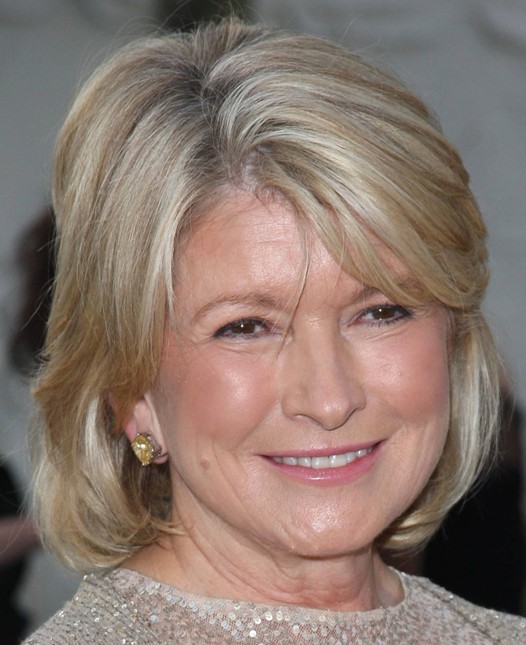 http://pophaircuts.com/images/2014/01/20-Best-Short-Hairstyles-for-Older-Women.jpg
http://pophaircuts.com/images/2014/01/20-Best-Short-Hairstyles-for-Older-Women.jpg15 Hottest Short Haircuts for Women PoPular Haircuts
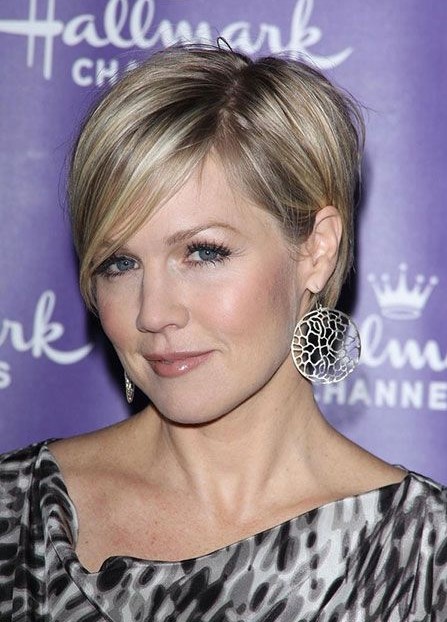 http://pophaircuts.com/images/2013/12/2014-Short-Haircuts-for-Women-Celebrity-Hairstyle.jpg
http://pophaircuts.com/images/2013/12/2014-Short-Haircuts-for-Women-Celebrity-Hairstyle.jpgBest Short Hairstyles Square Face furthermore Women Short Hairstyle
 http://gvenny.com/images5/0316/2016-short-hairstyles-trends/2016-short-hairstyles-trends-43_4.jpg
http://gvenny.com/images5/0316/2016-short-hairstyles-trends/2016-short-hairstyles-trends-43_4.jpgOIP.Mce452bb48c57590845f354fe103cd834o1
366302353F7FCC6B40B97FF387A048BAB5EA63A2A1http://www.short-hairstyles.co/40-best-short-hairstyles-2014-2015.html
Embed Our image to your website
ThumbnailImageEmbed Our image to a Forum
ThumbnailImage
Short Hairstyles 2014 2015 The Best Short Hairstyles for Women
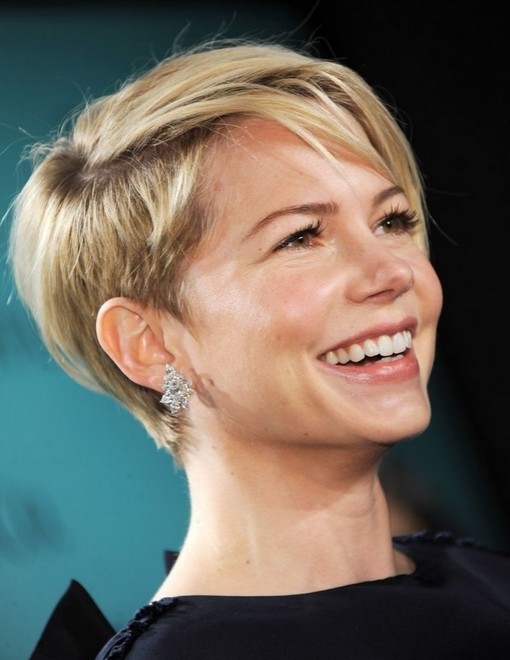 Short Haircuts for Women: Short Hair Styles 2015 PoPular Haircutshttp://pophaircuts.com/images/2014/12/Michelle-Williams-Short-Hair-Style-Celebrity-Pixie-Haircuts.jpg
Short Haircuts for Women: Short Hair Styles 2015 PoPular Haircutshttp://pophaircuts.com/images/2014/12/Michelle-Williams-Short-Hair-Style-Celebrity-Pixie-Haircuts.jpgHottest Short Hairstyles Women
A hairstyle, hairdo, or haircut refers to the styling of mane, usually on the real human scalp. Sometimes, this could also mean an editing of beard hair. The fashioning of hair can be viewed as an element of personal grooming, fashion, and cosmetics, although practical, cultural, and popular considerations affect some hair styles also. The oldest known depiction of hair braiding dates back about 30,000 years. In traditional civilizations, women's wild hair was often elaborately and carefully dressed in special ways. In Imperial Rome, women used their mane in complicated styles. From enough time of the Roman Empire[citation needed] until the Middle Ages, nearly all women grew their mane so long as it would obviously expand. During the Roman Empire as well as in the 16th century in the western world, women commenced to wear their hair in extremely ornate styles. Within the later half of the 15th century and on in to the 16th century a very high hairline on the forehead was considered attractive. Through the 15th and 16th decades, European men wore their mane cropped no than shoulder-length longer. In the first 17th century male hairstyles grew longer, with waves or curls being considered desirable.
The male wig was pioneered by King Louis XIII of France (1601-1643) in 1624. Periwigs or perukes for men were created into the English-speaking world with other French styles in 1660. Late 17th-century wigs were very long and wavy, but became shorter in the mid-18th century, where time they were normally white. Short hair for fashionable men was a product of the Neoclassical movement. In the early 19th hundred years the guy beard, and also moustaches and sideburns, made a strong reappearance. In the 16th to the 19th century, European women's scalp became more noticeable while their locks coverings grew smaller. In the center of the 18th century the pouf style developed. Through the First World Battle, women around the world started to shift to shorter hairstyles that were simpler to manage. In the first 1950s women's hair was generally curled and worn in a number of styles and lengths. In the 1960s, many women commenced to wear their head of hair in short modern cuts such as the pixie cut, while in the 1970s, hair tended to be much longer and looser. In both the 1960s and 1970s many men and women wore their hair very long and straight. Within the 1980s, women pulled back their hair with scrunchies. During the 1980s, punk hair styles were adopted by some people.
Throughout times, folks have worn their wild hair in a multitude of styles, largely determined by the fashions of the culture they live in. Hairstyles are signifiers and markers of social class, age, marital status, racial identification, political beliefs, and attitudes about gender.
In many cultures, for religious reasons often, women's locks is protected while in public, and in a few, such as Haredi Judaism or Western european Orthodox areas, women's mane is shaved or minimize very short, and covered with wigs.Only because the end of World Warfare I have women begun to wear their mane brief and in fairly natural styles.
Paleolithic
- The oldest known duplication of head of hair braiding lies back again about 30,000 years: the Venus of Willendorf, known in academia as the girl of Willendorf now, of a lady figurine from the Paleolithic, estimated to own been made between about 28,000 and 25,000 BCE.The Venus of Brassempouy counts about 25,000 yrs . old and indisputably shows hairstyling.
Bronze Age
- In Bronze Era razors were known and used by some men, however, not on a regular basis since the technique was rather unpleasant and required resharpening of the tool which reduced its strength.
Ancient history
- In historical civilizations, women's wild hair was often elaborately and carefully dressed in special ways. Women coloured their hair, curled it, and pinned it up (ponytail) in many ways. They place their mane in waves and curls using moist clay, which they dried out in the sun and combed out then, or else by by using a jelly made of quince seeds soaked in normal water, or styling tongs and styling irons of varied kinds.
Roman Empire and DARK AGES
- Between 27 BC and 102 Advertising, in Imperial Rome, women used their locks in complicated styles: scores of curls at the top, or in rows of waves, drawn back to ringlets or braids. Eventually noblewomen's hairstyles grew so complex that they required daily attention from several slaves and a stylist in order to be maintained. The locks was lightened using timber ash, unslaked lime and sodium bicarbonate, or darkened with copper filings, oak-apples or leeches marinated in vinegar and wine beverage. It had been augmented by wigs, hairpieces and pads, and held in place by nets, pins, pomade and combs. Beneath the Byzantine Empire, noblewomen covered the majority of their hair with silk pearl and caps nets.
Best Hair Styles For Short Hair Women
- It is vital to find the best short hairstyles for ladies since it performs an enormous part of your look. Having the right hairstyle provides you with joy and positive feelings. Find out which hairstyle is perfect for your character and personality. You should also consult your hairstylist before having a new haircut. After all, changes are excellent and it can truly add positive perspective in your daily life also. Feel absolve to browse our assortment of short hairstyles for females and select the one that your like best.
Hot Easy Short Hairstyles for Women
 http://www.circletrest.com/wp-content/uploads/2013/07/Hot-Easy-Short-Hairstyles-for-Women.jpg
http://www.circletrest.com/wp-content/uploads/2013/07/Hot-Easy-Short-Hairstyles-for-Women.jpgThe Best Short Hairstyles for Women 2015 Women Daily Magazine
 http://a3559z1.americdn.com/wp-content/uploads/2015/02/The-Best-Short-Hairstyles-for-Women-2015-1.jpg
http://a3559z1.americdn.com/wp-content/uploads/2015/02/The-Best-Short-Hairstyles-for-Women-2015-1.jpg27 Best Short Haircuts for Women: Hottest Short Hairstyles PoPular
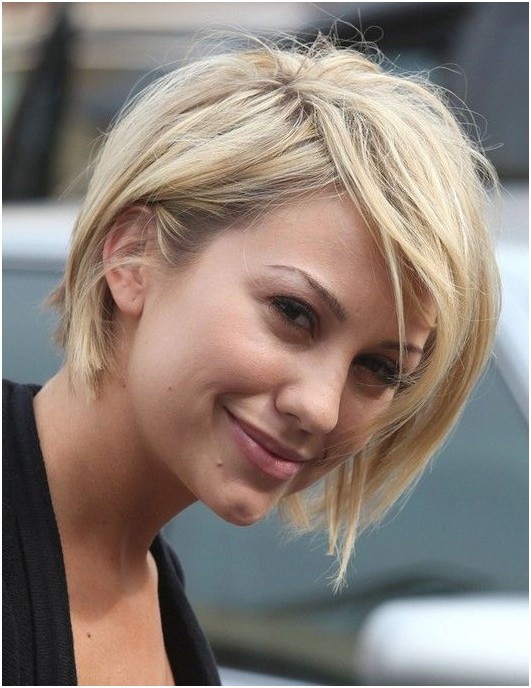 http://pophaircuts.com/images/2014/03/2014-Short-Haircuts-for-Women.jpg
http://pophaircuts.com/images/2014/03/2014-Short-Haircuts-for-Women.jpgwomen ideal hairstyles sexy short hairstyles short hairstyles short
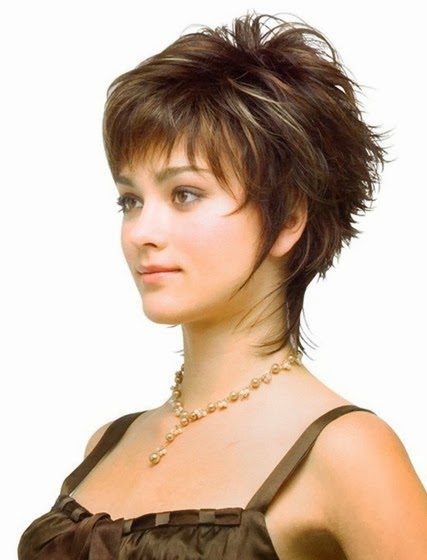 https://blogger.googleusercontent.com/img/b/R29vZ2xl/AVvXsEiZtV536ntkrnIonnVcgQtqJEyl0H0WxPGGSv_GRq6XauriwNSCtL32wb0bZPRnazJENMZtYNWpR9q2uq74g3nba1-IQ7vQvR7Fd1wVjcSSxT0XzteRPliWPIGNL51GfyAyz9VpOBUE78s/s1600/Look+Sexy+With+Short+Hairstyles+For+Women.jpg
https://blogger.googleusercontent.com/img/b/R29vZ2xl/AVvXsEiZtV536ntkrnIonnVcgQtqJEyl0H0WxPGGSv_GRq6XauriwNSCtL32wb0bZPRnazJENMZtYNWpR9q2uq74g3nba1-IQ7vQvR7Fd1wVjcSSxT0XzteRPliWPIGNL51GfyAyz9VpOBUE78s/s1600/Look+Sexy+With+Short+Hairstyles+For+Women.jpgOIP.M9b6094bd06e7b413cbb1a3142055483eo1
22AEC50022351D6FCFE9DC1F6042E1FD90CFC431F8http://pophaircuts.com/40-pretty-short-haircuts-women-short-hair-styles-2015
Embed Our image to your website
ThumbnailImageEmbed Our image to a Forum
ThumbnailImage
Short Haircuts for Women: Short Hair Styles 2015 PoPular Haircuts
 new trendy short haircuts for women 2013 short hairstyles 2014http://gvenny.com/images/beautiful-short-hairstyles-for-women/beautiful-short-hairstyles-for-women-16-4.jpg
new trendy short haircuts for women 2013 short hairstyles 2014http://gvenny.com/images/beautiful-short-hairstyles-for-women/beautiful-short-hairstyles-for-women-16-4.jpgLovely Short Hairstyles For Women
A hairstyle, hairdo, or haircut refers to the styling of hair, on the real human head usually. Sometimes, this may also mean an editing of beard hair. The fashioning of hair can be considered an element of personal grooming, fashion, and cosmetics, although practical, cultural, and popular considerations also influence some hairstyles. The oldest known depiction of hair braiding goes back about 30,000 years. In ancient civilizations, women's mane was often elaborately and carefully dressed up in special ways. In Imperial Rome, women wore their wild hair in complicated styles. From enough time of the Roman Empire[citation needed] until the Middle Ages, a lot of women grew their locks so long as it could develop naturally. During the Roman Empire as well as in the 16th century in the western world, women started to wear their hair in extremely ornate styles. In the later half of the 15th century and on into the 16th century a very high hairline on the forehead was considered attractive. During the 16th and 15th centuries, Western men wore their hair cropped no than shoulder-length longer. In the first 17th century male hairstyles grew longer, with waves or curls being considered desirable.
The male wig was pioneered by King Louis XIII of France (1601-1643) in 1624. Perukes or periwigs for men were introduced in to the English-speaking world with other French styles in 1660. 17th-century wigs were very long and wavy late, but became shorter in the mid-18th century, by which time they were white normally. Short hair for fashionable men was something of the Neoclassical movement. In the early 19th hundred years the men beard, and moustaches and sideburns also, made a solid reappearance. From 16th to the 19th century, European women's mane became more obvious while their head of hair coverings grew smaller. In the center of the 18th century the pouf style developed. Through the First World War, women around the world started to shift to shorter hairstyles that were much easier to manage. In the early 1950s women's hair was generally curled and worn in a variety of styles and lengths. In the 1960s, many women started out to wear their scalp in a nutshell modern cuts including the pixie cut, while in the 1970s, locks tended to looser be much longer and. In both 1960s and 1970s many men and women used their head of hair very straight and long. Within the 1980s, women pulled back their hair with scrunchies. During the 1980s, punk hair styles were used by some individuals.
Throughout times, folks have worn their mane in a multitude of styles, determined by the fashions of the culture they live in largely. Hairstyles are markers and signifiers of social class, age, marital status, racial identification, political beliefs, and attitudes about gender.
In many ethnicities, for religious reasons often, women's mane is protected while in public, and in some, such as Haredi Judaism or Western Orthodox areas, women's mane is shaved or cut very short, and protected with wigs.Only because the end of World War I've women begun to wear their mane short and in rather natural styles.
Paleolithic
- The oldest known reproduction of head of hair braiding lies back again about 30,000 years: the Venus of Willendorf, known in academia as the Woman of Willendorf now, of a female figurine from the Paleolithic, estimated to possess been made between about 28,000 and 25,000 BCE.The Venus of Brassempouy matters about 25,000 yrs . old and shows hairstyling indisputably.
Bronze Age
- In Bronze Years razors were known and used by some men, but not on a daily basis since the procedure was rather upsetting and required resharpening of the tool which reduced its strength.
Ancient history
- In traditional civilizations, women's hair was often elaborately and carefully dressed in special ways. Women coloured their scalp, curled it, and pinned it up (ponytail) in many ways. They establish their locks in waves and curls using damp clay, which they dried out in the sun and combed out then, or else by utilizing a jelly manufactured from quince seed products soaked in drinking water, or curling tongs and styling irons of various kinds.
Roman Empire and Middle Ages
- Between 27 BC and 102 Advertisement, in Imperial Rome, women used their wild hair in complicated styles: a mass of curls on top, or in rows of waves, attracted back to braids or ringlets. Eventually noblewomen's hairstyles grew so complex that they required daily attention from several slaves and a stylist in order to be maintained. The locks was lightened using solid wood ash, unslaked lime and sodium bicarbonate, or darkened with copper filings, oak-apples or leeches marinated in vinegar and wine beverages. It had been augmented by wigs, hairpieces and pads, and held in place by nets, pins, combs and pomade. Under the Byzantine Empire, noblewomen covered the majority of their hair with silk caps and pearl nets.
Best Hair Styles For Short Hair Women
- It is vital to choose the best short hair styles for girls since it plays an enormous part of your style. Having the right hairstyle provides you with enjoyment and positive feelings. Find out which hairstyle is simply perfect for your character and personality. You should check with your hairstylist before having a new haircut also. After all, changes are excellent and additionally, it may add positive outlook in your daily life. Feel free to browse our assortment of short hairstyles for women and choose the one that your like best.
Beautiful Short Hairstyles for Black Women Short Hairstyles 2015
 http://www.hairstyleshelp.com/wp-content/uploads/2013/11/Beautiful-Short-Haircuts-for-Older-Women.jpg
http://www.hairstyleshelp.com/wp-content/uploads/2013/11/Beautiful-Short-Haircuts-for-Older-Women.jpgBeautiful Women with Short Hair The Hottest Women Short Haircuts
 http://esq.h-cdn.co/assets/cm/15/05/54cde6ecd5f7b_-_esq-01-beautiful-women-short-hair-030413-mdn.jpg
http://esq.h-cdn.co/assets/cm/15/05/54cde6ecd5f7b_-_esq-01-beautiful-women-short-hair-030413-mdn.jpgLovely Short Hairstyles Hairstyles 2014 Short Hair Styles Long
 http://shortlonghairstyles.net/wp-content/uploads/2012/05/short-hairstyles-for-women-4.jpg
http://shortlonghairstyles.net/wp-content/uploads/2012/05/short-hairstyles-for-women-4.jpgLovely Short Hairstyles Hairstyles 2014 Short Hair Styles Long
 http://shortlonghairstyles.net/wp-content/uploads/2012/05/short-hairstyles-for-women-4.jpg
http://shortlonghairstyles.net/wp-content/uploads/2012/05/short-hairstyles-for-women-4.jpgOIP.M552d750df58cfac1d7661b692cf295d9o2
66DF75538A44B0E28F0302042CA69108795BD444Chttp://gvenny.com/beautiful-short-hairstyles-for-women/
Embed Our image to your website
ThumbnailImageEmbed Our image to a Forum
ThumbnailImage
new trendy short haircuts for women 2013 short hairstyles 2014
 Short Hairstyles for Older Women 2014 – 2015 Latest Bob HairStyleshttp://www.latestbobhairstyles.com/wp-content/uploads/imgs/Short-Hairstyles-for-Older-Women-2014-2015-10.jpg
Short Hairstyles for Older Women 2014 – 2015 Latest Bob HairStyleshttp://www.latestbobhairstyles.com/wp-content/uploads/imgs/Short-Hairstyles-for-Older-Women-2014-2015-10.jpgLatest Short Hairstyles For Women
A hair, hairdo, or haircut refers to the styling of hair, usually on the human being scalp. Sometimes, this may suggest an editing of beard locks also. The fashioning of hair can be viewed as an aspect of personal grooming, fashion, and cosmetics, although practical, cultural, and popular considerations also influence some hairstyles. The oldest known depiction of hair braiding dates back about 30,000 years. In historic civilizations, women's wild hair was often elaborately and carefully dressed up in special ways. In Imperial Rome, women wore their scalp in complicated styles. From the time of the Roman Empire[citation needed] before Middle Ages, many women grew their locks as long as it could develop effortlessly. Through the Roman Empire as well as in the 16th century in the western world, women began to wear their hair in extremely ornate styles. In the later half of the 15th century and on into the 16th century a very high hairline on the forehead was considered attractive. During the 16th and 15th hundreds of years, Western men wore their hair cropped no more than shoulder-length. In the early 17th century male hairstyles grew longer, with waves or curls being considered desirable.
The male wig was pioneered by Ruler Louis XIII of France (1601-1643) in 1624. Periwigs or perukes for men were released in to the English-speaking world with other French styles in 1660. Late 17th-century wigs were very long and wavy, but became shorter in the mid-18th century, by which time they were white normally. Short hair for fashionable men was something of the Neoclassical movement. In the early 19th hundred years the male beard, and also moustaches and sideburns, made a strong reappearance. From your 16th to the 19th hundred years, European women's mane became more visible while their scalp coverings grew smaller. In the center of the 18th century the pouf style developed. During the First World Battle, women around the global world started to shift to shorter hairstyles that were much easier to manage. In the early 1950s women's hair was generally curled and worn in a number of styles and lengths. In the 1960s, many women began to wear their scalp in a nutshell modern cuts including the pixie cut, within the 1970s, wild hair tended to looser be longer and. In both 1960s and 1970s many men and women wore their hair lengthy and straight. Inside the 1980s, women pulled back their hair with scrunchies. Through the 1980s, punk hair styles were used by some interpersonal people.
Throughout times, folks have worn their scalp in a multitude of styles, determined by the fashions of the culture they reside in largely. Hairstyles are markers and signifiers of social class, age, marital status, racial identification, political beliefs, and attitudes about gender.
In many cultures, for religious reasons often, women's wild hair is covered while in public areas, and in some, such as Haredi Judaism or Western european Orthodox neighborhoods, women's head of hair is shaved or cut very short, and protected with wigs.Only since the end of World Battle I have women begun to wear their wild hair short and in rather natural styles.
Paleolithic
- The oldest known reproduction of mane braiding lies back about 30,000 years: the Venus of Willendorf, now known in academia as the girl of Willendorf, of a female figurine from the Paleolithic, believed to own been made between about 28,000 and 25,000 BCE.The Venus of Brassempouy counts about 25,000 years of age and indisputably shows hairstyling.
Bronze Age
- In Bronze Time razors were known and in use by some men, but not on a daily basis since the technique was rather annoying and required resharpening of the tool which reduced its endurance.
Ancient history
- In traditional civilizations, women's scalp was often elaborately and carefully dressed in special ways. Women colored their wild hair, curled it, and pinned it up (ponytail) in many ways. They set in place their head of hair in curls and waves using wet clay, which they dried in the sun and then combed out, or else by utilizing a jelly made of quince seeds soaked in normal water, or curling tongs and styling irons of various kinds.
Roman Empire and Middle Ages
- Between 27 BC and 102 AD, in Imperial Rome, women used their locks in complicated styles: a mass of curls on top, or in rows of waves, drawn back to braids or ringlets. Eventually noblewomen's hairstyles grew so complex that they required daily attention from several slaves and a stylist in order to be maintained. The hair was often lightened using lumber ash, unslaked lime and sodium bicarbonate, or darkened with copper filings, oak-apples or leeches marinated in wine and vinegar. It was augmented by wigs, pads and hairpieces, and held set up by nets, pins, combs and pomade. Beneath the Byzantine Empire, noblewomen covered the majority of their hair with silk caps and pearl nets.
Best HAIRSTYLES For Short Hair Women
- It is vital to choose the best short hair styles for girls since it takes on an enormous part of your style. Getting the right hairstyle can provide you with enjoyment and positive emotions. Find out which hairstyle is ideal for your personality and character. You should also check with your hairstylist before having a new haircut. After all, changes are excellent and it can add positive prospect in your daily life also. Feel free to browse our assortment of short hairstyles for girls and choose the one which your like best.
LatestShortHairstylesforWomen2014 – I Me My Health
 http://www.imemyhealth.com/wp-content/uploads/2015/02/Latest-Short-Hairstyles-for-Women-2014.jpg
http://www.imemyhealth.com/wp-content/uploads/2015/02/Latest-Short-Hairstyles-for-Women-2014.jpgShort Hairstyles for Older Women 2014 – 2015 Latest Bob HairStyles
 http://www.latestbobhairstyles.com/wp-content/uploads/imgs/Short-Hairstyles-for-Older-Women-2014-2015-10.jpg
http://www.latestbobhairstyles.com/wp-content/uploads/imgs/Short-Hairstyles-for-Older-Women-2014-2015-10.jpgNew Summer Short Hairstyles amp; Haircut Trends for Women 20152016
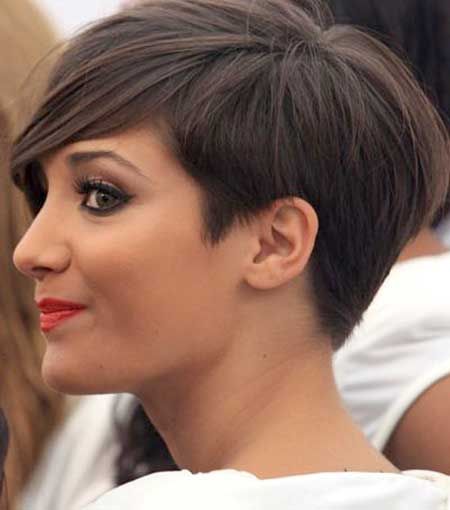 http://www.stylesgap.com/wp-content/uploads/2015/05/Latest-Summer-Short-Hairstyles-for-women-2015-2016-5.jpg
http://www.stylesgap.com/wp-content/uploads/2015/05/Latest-Summer-Short-Hairstyles-for-women-2015-2016-5.jpgNew Summer Short Hairstyles amp; Haircut Trends for Women 20152016
 http://www.stylesgap.com/wp-content/uploads/2015/05/Latest-Summer-Short-Hairstyles-for-women-2015-2016-5.jpg
http://www.stylesgap.com/wp-content/uploads/2015/05/Latest-Summer-Short-Hairstyles-for-women-2015-2016-5.jpgOIP.Meefb07374c30a0c5947113caefafae70o2
168BA1DAC2CF4291FDFE401409D9F86DA0209163A4http://www.latestbobhairstyles.com/short-hairstyles-older-women-2014-2015.html
Embed Our image to your website
ThumbnailImageEmbed Our image to a Forum
ThumbnailImage
Short Hairstyles for Older Women 2014 – 2015 Latest Bob HairStyles
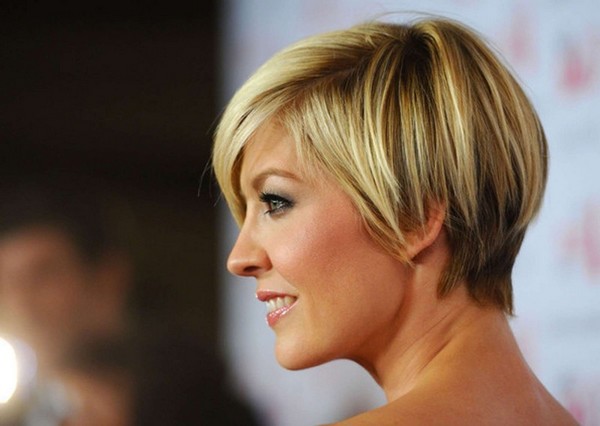 Hottest Short Hairstyles Womenhttp://beautifieddesigns.com/wp-content/uploads/2015/12/hottest-short-hairstyles-women.jpg
Hottest Short Hairstyles Womenhttp://beautifieddesigns.com/wp-content/uploads/2015/12/hottest-short-hairstyles-women.jpgHottest Short Hairstyles Women
A hairstyle, hairdo, or haircut identifies the styling of head of hair, on the human being head usually. Sometimes, this could also mean an editing of beard hair. The fashioning of hair can be considered an element of personal grooming, fashion, and cosmetics, although practical, cultural, and popular concerns affect some hairstyles also. The oldest known depiction of hair braiding goes back about 30,000 years. In historic civilizations, women's hair was often elaborately and carefully dressed up in special ways. In Imperial Rome, women used their wild hair in complicated styles. From the time of the Roman Empire[citation needed] before Middle Ages, majority of the women grew their mane as long as it could naturally expand. During the Roman Empire as well as in the 16th century under western culture, women started to wear their hair in ornate styles extremely. Within the later half of the 15th century and on in to the 16th century an extremely high hairline on the forehead was considered attractive. During the 16th and 15th decades, Western men wore their head of hair cropped no longer than shoulder-length. In the first 17th century male hairstyles grew longer, with curls or waves being considered suitable.
The male wig was pioneered by Ruler Louis XIII of France (1601-1643) in 1624. Perukes or periwigs for men were created in to the English-speaking world with other French styles in 1660. Late 17th-century wigs were lengthy and wavy, but became shorter in the mid-18th century, by which time these were normally white. Short hair for fashionable men was something of the Neoclassical movement. In the first 19th century the male beard, and moustaches and sideburns also, made a solid reappearance. From the 16th to the 19th hundred years, European women's mane became more noticeable while their scalp coverings grew smaller. In the middle of the 18th hundred years the pouf style developed. During the First World Battle, women around the world started to shift to shorter hairstyles that were easier to manage. In the first 1950s women's hair was generally curled and worn in a number of styles and lengths. In the 1960s, many women commenced to wear their hair in short modern cuts including the pixie cut, within the 1970s, wild hair tended to be much longer and looser. In both the 1960s and 1970s a lot of men and women wore their hair very long and straight. Inside the 1980s, women pulled back their hair with scrunchies. Through the 1980s, punk hair styles were used by some people.
Throughout times, folks have worn their scalp in a multitude of styles, determined by the fashions of the culture they live in largely. Hairstyles are markers and signifiers of social class, age, marital status, racial identification, political beliefs, and attitudes about gender.
In many ethnicities, for religious reasons often, women's mane is covered while in public, and in some, such as Haredi Judaism or Western european Orthodox areas, women's wild hair is shaved or minimize very short, and protected with wigs.Only because the end of World Battle I have women begun to wear their mane brief and in rather natural styles.
Paleolithic
- The oldest known reproduction of hair braiding lies again about 30,000 years: the Venus of Willendorf, known in academia as the Woman of Willendorf now, of a lady figurine from the Paleolithic, predicted to own been made between about 28,000 and 25,000 BCE.The Venus of Brassempouy counts about 25,000 years of age and shows hairstyling indisputably.
Bronze Age
- In Bronze Time razors were known and used by some men, but not on a regular basis since the treatment was rather annoying and required resharpening of the tool which reduced its endurance.
Ancient history
- In old civilizations, women's wild hair was often elaborately and carefully dressed in special ways. Women coloured their head of hair, curled it, and pinned it up (ponytail) in many ways. They place their head of hair in curls and waves using wet clay, that they dried in the sun and then combed out, or else by utilizing a jelly made of quince seed products soaked in drinking water, or curling tongs and styling irons of various kinds.
Roman Empire and Middle Ages
- Between 27 BC and 102 Advertisement, in Imperial Rome, women used their scalp in complicated styles: scores of curls on top, or in rows of waves, drawn back to braids or ringlets. Eventually noblewomen's hairstyles grew so complex that they required daily attention from several slaves and a stylist in order to be maintained. The wild hair was lightened using real wood ash, unslaked lime and sodium bicarbonate, or darkened with copper filings, oak-apples or leeches marinated in wine beverages and vinegar. It was augmented by wigs, pads and hairpieces, and held set up by nets, pins, combs and pomade. Beneath the Byzantine Empire, noblewomen covered the majority of their hair with silk caps and pearl nets.
Best Hair Styles For Short Hair Women
- It is very important to choose the best short hair styles for females since it takes on an enormous part of your style. Having the right hairstyle can provide you with happiness and positive emotions. Find out which hairstyle is perfect for your personality and character. You should check with your hairstylist before having a new haircut also. After all, changes are excellent and it can truly add positive view in your life also. Feel absolve to browse our assortment of short hairstyles for females and select the one that your like best.
30 Best Short Hair Cuts Short Hairstyles 2015 2016 Most Popular
 http://www.short-haircut.com/wp-content/uploads/2016/05/Best-Short-Haircuts.jpg
http://www.short-haircut.com/wp-content/uploads/2016/05/Best-Short-Haircuts.jpg20 Hottest Short Hairstyles for Older Women PoPular Haircuts
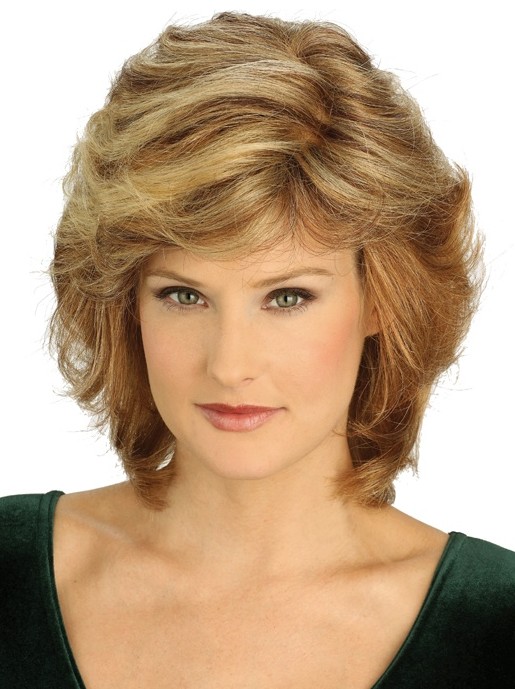 http://pophaircuts.com/images/2014/01/20-Short-Hairstyles-for-Older-Women.jpg
http://pophaircuts.com/images/2014/01/20-Short-Hairstyles-for-Older-Women.jpg20 Hottest Short Hairstyles for Older Women PoPular Haircuts
 http://pophaircuts.com/images/2014/01/20-Best-Short-Hairstyles-for-Older-Women.jpg
http://pophaircuts.com/images/2014/01/20-Best-Short-Hairstyles-for-Older-Women.jpgPixie Hairstyles For Women Popular Short Pixie Haircuts For Women
 http://pophaircuts.com/images/2014/04/Best-Short-Pixie-Hairstyles-for-Women-Over-40.jpg
http://pophaircuts.com/images/2014/04/Best-Short-Pixie-Hairstyles-for-Women-Over-40.jpgOIP.Ma9f6881946318484e63158d7ec548460o0
1110C83A5F7CE2EF35BEEB2434BF7F8C40A8A254A9http://beautifieddesigns.com/short-hairstyles-for-women/
Embed Our image to your website
ThumbnailImageEmbed Our image to a Forum
ThumbnailImage
.jpg)



.jpg)